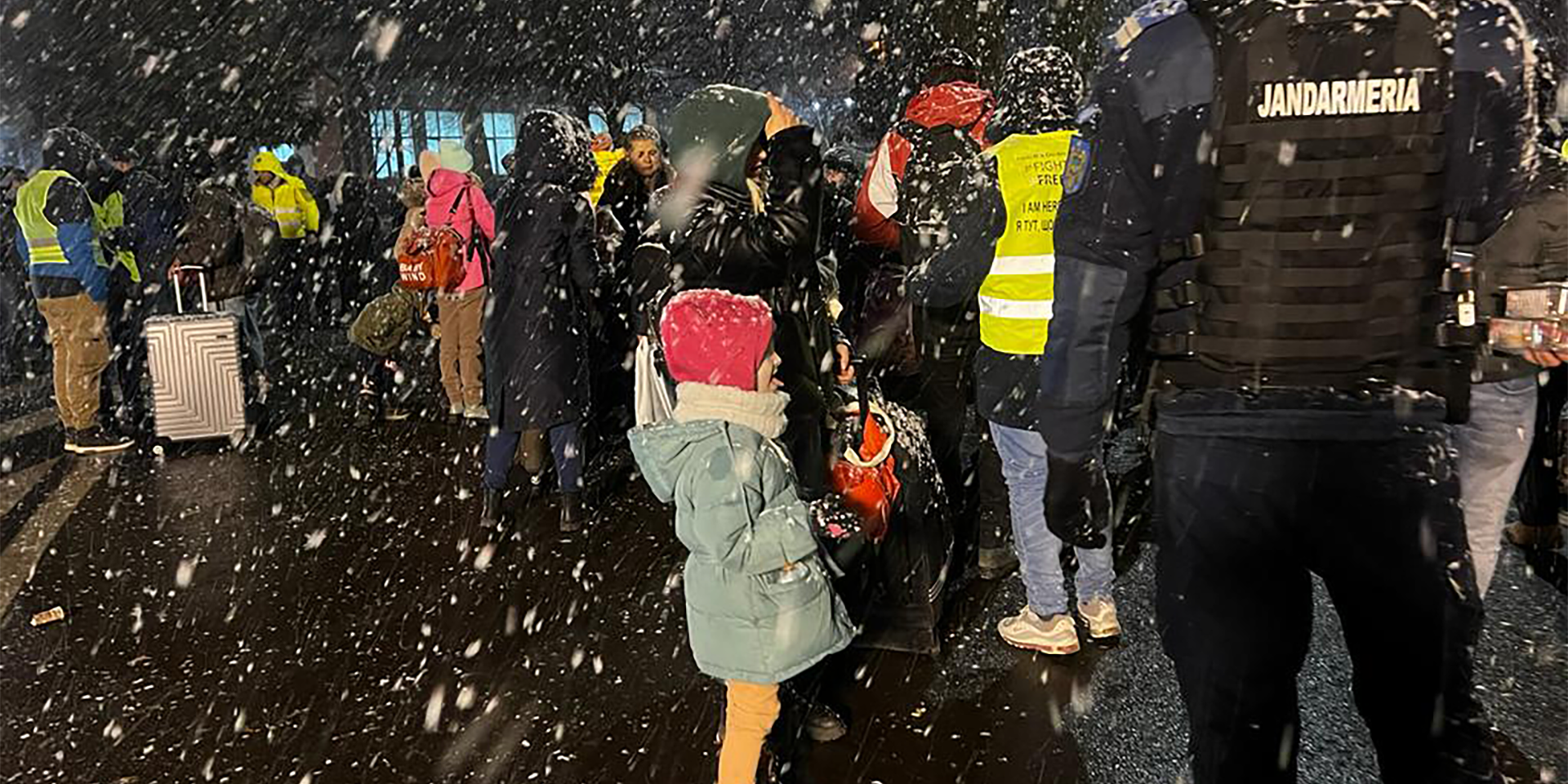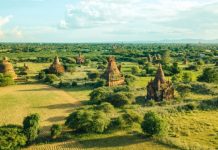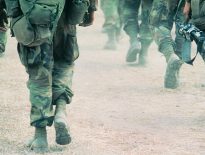There are no small acts of kindness in times of peace, let alone in times of war. It is a simple truth, which I have rediscovered these days, observing the acts of kindness made by the Adventist Church volunteers helping the refugees from Ukraine, and the reverberations that this help—which has become the epicentre of a great need—has had.
It is the eighth day of war in Ukraine, and the number of refugees is constantly rising. The number of Ukrainians who left their country surpassed 800,000 on Wednesday, March 2nd, and the UN Refugee Agency warns that the deteriorating situation in Ukraine could result in 4 million refugees.
Since the beginning of the war, tens of thousands of Ukrainians have crossed the border into Romania, and many of them are still in our country. Among them, several hundred have applied for asylum, according to the Romanian government.
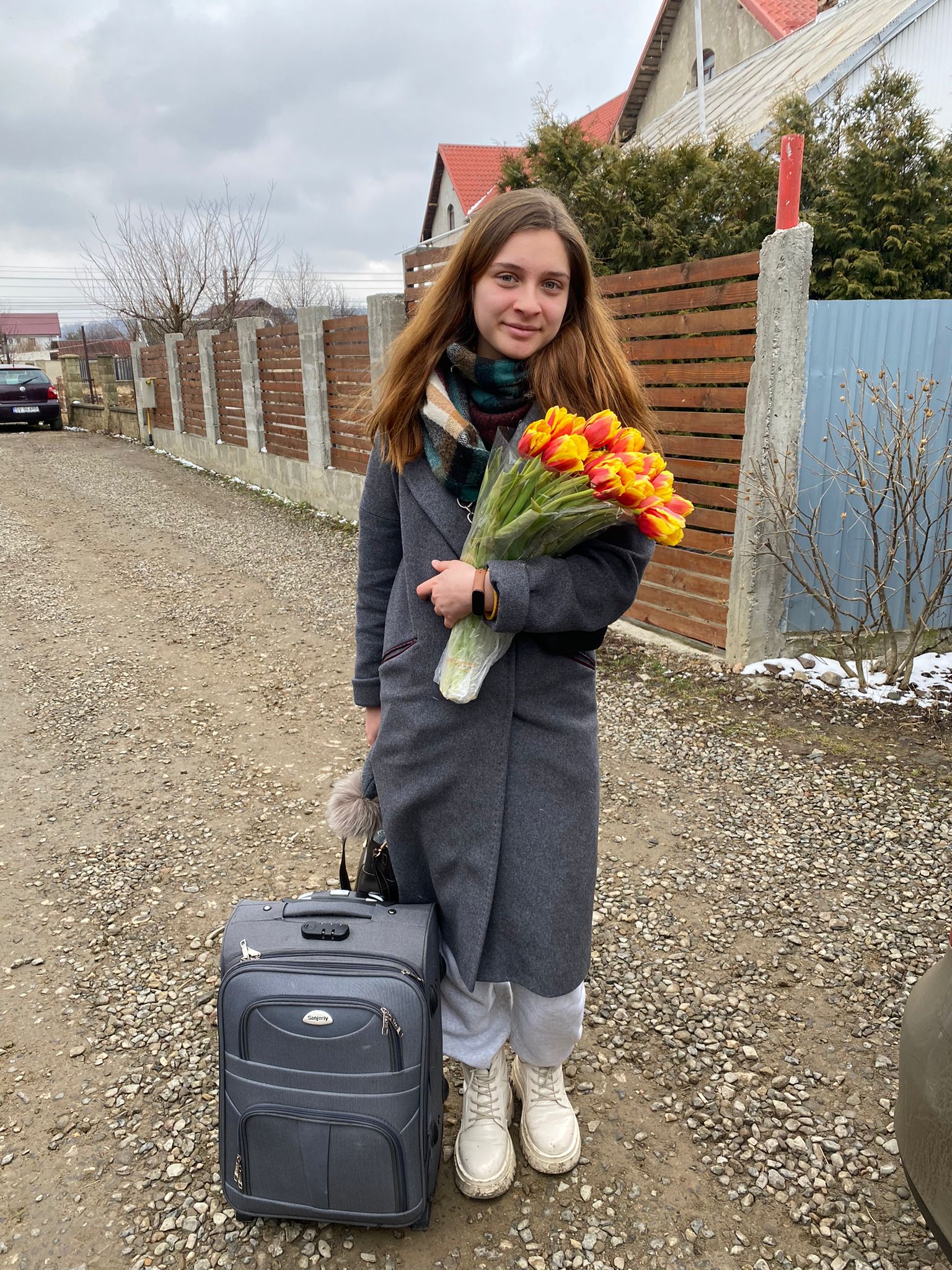
Dozens of press articles and hundreds of social media posts reveal an unprecedented mobilisation of Romanians to help the Ukrainians who are fleeing the war. On February 25th, the Romanian government said in a press release that it had begun coordinating government institutions with civil society and international organisations, to provide humanitarian assistance to refugees.
The authorities also announced the creation of a central working group and territorial work cells in the vicinity of strategic points in the north and northeast of the country. Moreover, they provided an email address to the individuals and legal entities wishing to support humanitarian action.
Even if the number of offers exceeds the demand for help, at the moment, as the traffic from the borders with Ukraine is eased, the number of Ukrainians arriving in Romania increases. Some of them have relatives or friends to go to in other European countries but do not have the necessary documents to continue the trip.
Thousands of Romanians have expressed their willingness to host refugees, according to the Facebook group “Uniţi pentru Ucraina” (United for Ukraine), which helps refugees with food, medicine and accommodation, and which has already gathered over 200,000 members. More and more Romanian entrepreneurs and businesses have offered, in various forms, support for the refugees, and hundreds of volunteers of all ages, from all over Romania, are waiting at the border to offer them sandwiches, fruit, sweets, water or tea, but also free transport or accommodation, if needed.
The Ukrainian crisis is the starting point of an impressive wave of solidarity, which took both witnesses and beneficiaries by surprise. Those who know that all this capital of compassion and help invested in those who suffer is, in the end, directed towards their Father, could not miss this exercise in unity.
“Hope for Ukraine”
“The Church has always intervened because the Bible urges us to help those in need,” said Aurel Neaţu, president of the Seventh-day Adventist Church in Romania. He emphasised that the Adventist Church is supporting Ukrainian refugees who seek shelter in Romania or transit the country, offering help through its institutions and volunteers.
At present, there are about 1,000 Adventist households (with a capacity of about 3,000 beds) readily available for the refugees, while the Church’s mission and youth centres can receive another 500 refugees, according to information provided by Lorand Balla, director of the Ethnic Groups Department of the Adventist Church. The most intense refugee assistance activity takes place at the Siret Customs, and most of the refugees taken over by Adventist volunteers are directed to the Coșna Youth and Mission Centre, in Suceava County.
The Adventist Development and Relief Agency (ADRA) has announced the safe arrival of the ADRA Humanitarian Convoy in Ukraine, with thousands of products such as mattresses, blankets, pillows, linen, hygiene products, medicines and food supplements. The convoy arrived in Chernivtsi, and a large part of the items will be transferred to Kyiv and other parts of the country. According to an ADRA Romania press release, the organisation was the first humanitarian association to carry out a donation-type export, after a local monastery.
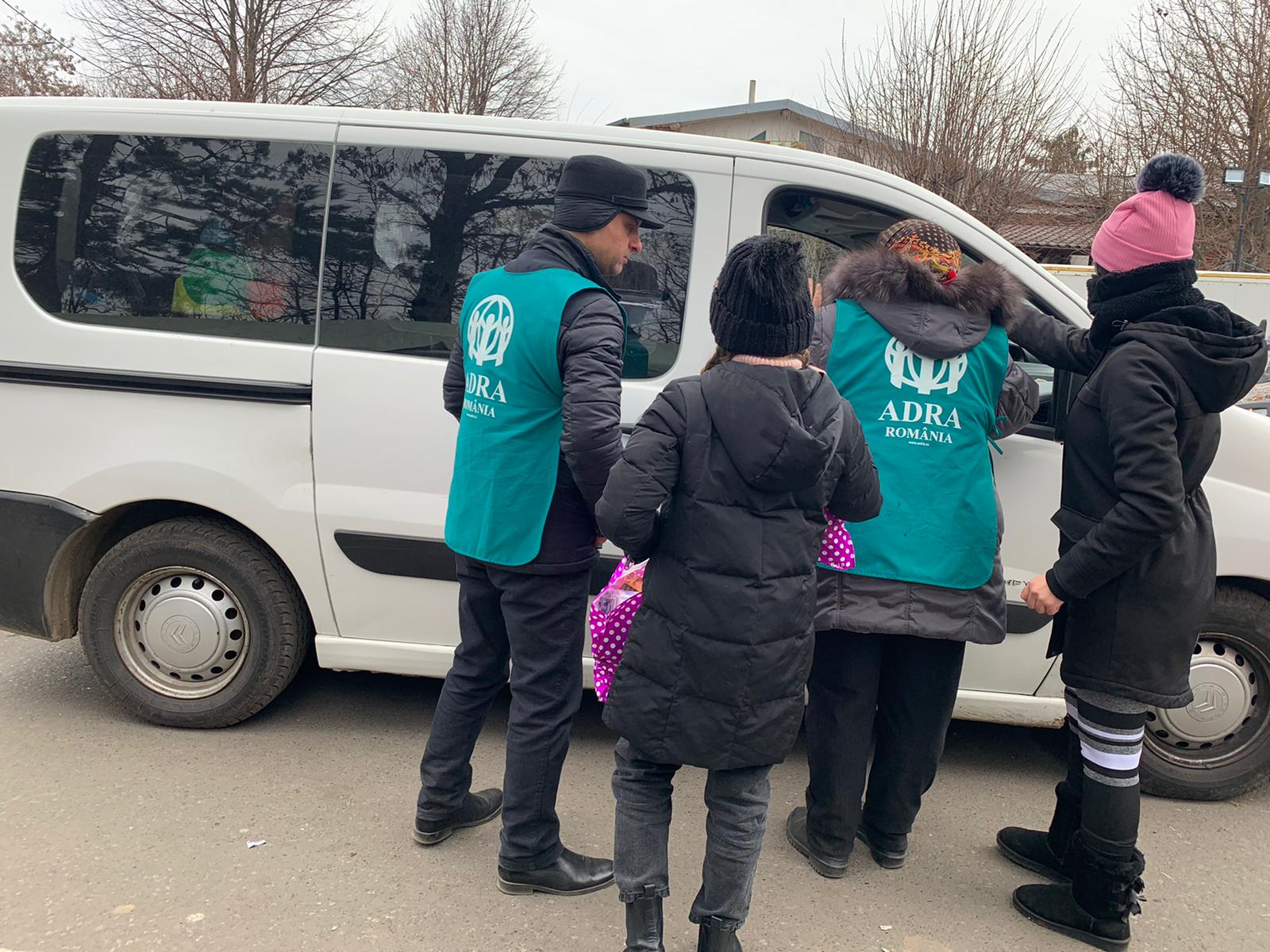
The organisation’s volunteers are providing emergency humanitarian assistance to Ukrainian refugees at the Halmeu, Sighetu Marmatiei, Siret and Isaccea border points. These are days, people and stories that the volunteers say they will have a hard time forgetting.
ADRA Romania coordinates the Hope for Ukraine program, providing information, food, clothing, shelter, and social and psychological assistance. Known for the effectiveness of its programs, especially those aimed at refugee immigrants, the organisation was awarded the First Prize in the category “Volunteering Projects and Campaigns” at the 15th edition of the Civil Society Gala, for its “Hope for Immigrants” program.
Volunteers at the border between two worlds
At the Siret Customs, the border crossing point where most Ukrainian refugees enter Romania, the cold is getting worse by the day, but Adventist volunteers offer their help around the clock. People of all ages and all walks of life have come to help: pensioners, students, pastors and believers from the surrounding areas, even people who have come from the other side of the country. Everyone has something to provide: some translate, others provide first aid products, transportation, accommodation, or replenish depleted stocks of food and hygiene products.
They are all fatigued, and their emotional baggage gets increasingly heavier, as they interact with the refugees—mostly women and children—who are cold and exhausted by the tens of hours they had waited to cross the border and are traumatised by the pain of separation from their loved ones and the fact that they had to abandon everything they had.
“Nothing is permanent and we could end up at any time in the same position as those to whom we extend a helping hand now.” These are the thoughts with which Willy Cotruţă, ADRA Project Coordinator in Moldova and Bucovina, ends a long day at Vama Siret. He spent a few days helping refugees and had the opportunity to see, beyond numbers, tragedies and heartbreaking stories that are harder to process when you give them a face, a voice, and a pair of eyes.
He talks about the sorrow on the faces of the refugees, the children’s cries of fatigue and fear, the sadness of the mothers, and the families separated at customs by the lack of documentation. He recalls the joy of a family of Algerian students, brought by Friday night’s last transport, contrasting sharply with the grief of the Ukrainian students, for whom, overnight, home is much further away than it is for their colleagues in Africa.
He recounts the story of the little boy who refused the pizza box given by a volunteer, taking only one slice and pointing his finger at other children, who could just as much use a warm slice of pizza. He told me about the fear which women feel when receiving transportation and accommodation offers, especially if they come from men.
Willy took a family consisting of a mother, three daughters and a 9-year-old niece to be accommodated in a church. They needed a place to stay, but they were extremely scared, even after the explanations of one of the Ukrainian-speaking ADRA volunteers. It was only when they reached their destination, at one of the churches in Bukovina, that they began to relax, and one of them exclaimed with a mixture of joy and relief: “This is a holy place!”
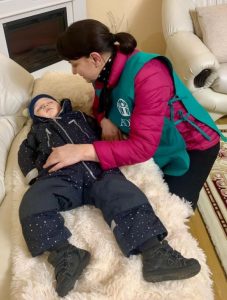 Many Adventist families have opened their homes to receive refugees for as long as it takes. The Butnaru family is one such family: they have already received three families of Ukrainians, some with small children, and the husband goes to the Siret Customs every day to see if he can help. “It is impossible not to cry there. I have not cried in my whole life as much as I have in the last days,” says Florin Butnaru, summarising everything he has seen and lived over the past days.
Many Adventist families have opened their homes to receive refugees for as long as it takes. The Butnaru family is one such family: they have already received three families of Ukrainians, some with small children, and the husband goes to the Siret Customs every day to see if he can help. “It is impossible not to cry there. I have not cried in my whole life as much as I have in the last days,” says Florin Butnaru, summarising everything he has seen and lived over the past days.
He did not think of a limit on the number of people he is ready to receive under his roof; if the beds get occupied, he is ready to bring in mattresses, and if the space becomes insufficient, his father has already suggested that he buy a furnace for the unused cabin in the garden.
No matter how tired he may become during the day, he still keeps his phone on during the night, for fear of missing an urgent call. He tells me that there is always someone who needs encouragement, transportation or accommodation. He has already invited other families to his home, including a father of seven, who is still undecided about whether to move away from the border, because he hopes that things will return to normal soon. The following night, a young family is expected to arrive.
They were forced to leave Ukraine just three days after the wife had a caesarean section. Even though their destination is Denmark, they still need accommodation during the recovery period of the young mother, who needs medical care because of postpartum complications. In all this emotional roller coaster of requests for help, the lines between day and night are still blurred in the house of the Butnaru family, but Mr Butnaru assures me that when it comes to extending a hand to someone who has nothing, sleep, material or spiritual resources don’t matter.
“A city of escape” and the common language within its walls
During the first five days of the war, more than 200 people from Ukraine were housed for at least one night in the Coșna Youth and Mission Centre of the Adventist Church from Suceava County, which has become “a city of escape” and an oasis for those so hard pressed, says Marin Chirileanu, the centre’s administrator. These are days of intense activity, people come and go, and they need someone to provide transportation at all hours, to handle the donations of basic necessities, and to make sure that the needs of children and adults are met.
This is a mission accomplished so far, a mother with two children assures me, saying that here they were provided with absolutely everything that a family who left with only their documents and two changes of clothes could need.
There are many children in the centre, so there is also joy, noise and a lot of play, but the reality behind this image of fun and innocence is much more complex, and impossible to capture by a photographer, says Pastor Cristian Trenchea. He spent a few days here with his family, providing counselling and support to refugee families.
Adults, on the other hand, go through emotions very difficult to understand from the outside—they stare blankly, can hardly smile, open up with difficulty, talk very little. The relief of being able to create a safer distance between their children and the rain of shells is dissipated by fears for those who were left at home, from whom they parted on the run, without being able to process the shock of separation.
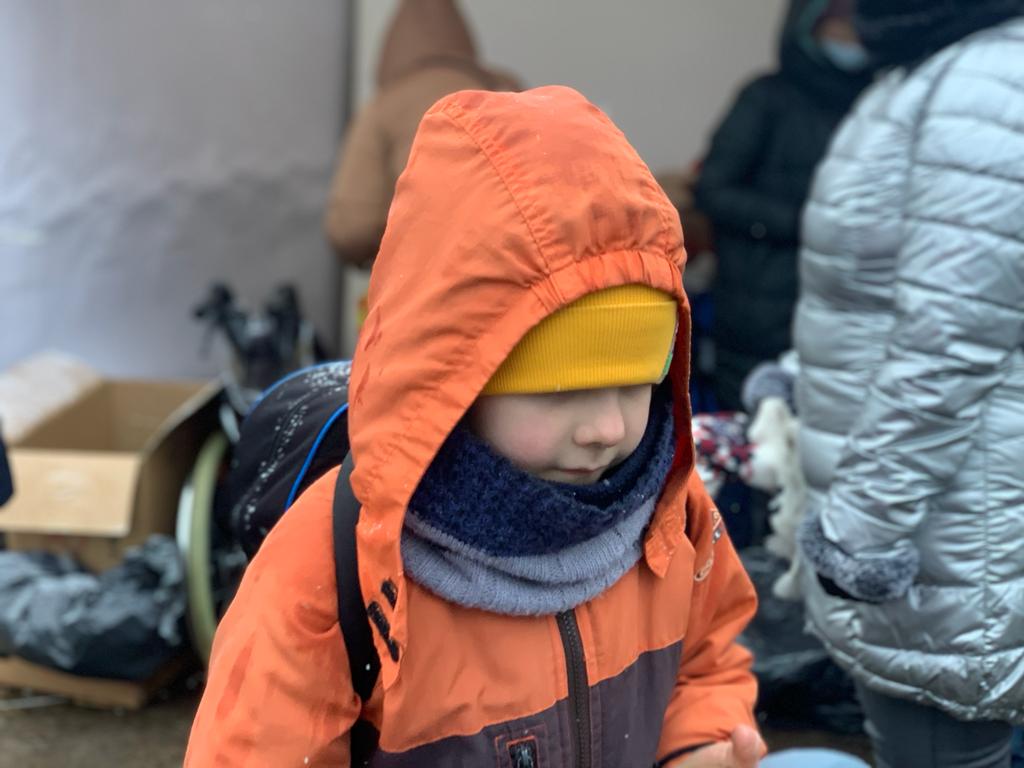
They talk a lot on the phone with those at home, they text, check the latest news frantically and cry. They still don’t understand the new reality into which the war has thrust them and can’t associate the town or the village they come from with the terrifying scenes they see in the videos and photos sent by friends and relatives. They suffer for the pets they left at home, which became part of the family in the years they spent together and are now left behind, helpless.
Some losses seem secondary, measured on a scale of deprivation and loss caused by war, but the cruelty of war also lies in the destruction of dozens of familiar details that make up a life.
The language barrier is hard to ignore, but the little ones don’t need words to understand each other, and the older kids use their phones and Google Translate to talk to each other or communicate simple things such as mealtimes, or the menu of the day. Mothers communicate through hugs and that specific maternal vigilance that catches on to any problem before it amplifies: a scared child crying incessantly, someone needing vitamins, a mother’s only pair of boots has broken.
For Christians, “charity is an aggression against the evil in the world,” says Pastor Mugurel Asaftei. In Coșna, as in so many other places in the country, people come with their lives torn to pieces by the cruelty of war, and all this exercise of kindness, renewed by every need fulfilled, could stick two or three shards together. It could reduce, albeit imperceptibly, the volume of suffering to tolerable levels. Whether or not it succeeds in doing so, the gratitude of those who are finally heading to a new destination shows that they have understood, without the need for a translator, every nuance of this healing language.
The image of war, fixed on the retina of the refugees
The morning of February 24th could have started as usual, like so many mornings of peace, for Ana’s family, if a phone call from another continent had not interrupted her sleep, with alarming news about what was happening in her own country. Ana is 29 years old, has two 6 years olds and a one and a half years old, she is a pharmacist and has been living in Chernivtsi for seven years.
In 2014, during the Crimean crisis, she left her country, taking refuge in Chisinau for two months, but now no family member took seriously the idea of a war, despite the tension floating in the air in recent weeks. The worst-case scenario people around her discussed was the invasion of eastern separatist regions. Awakened from her sleep by her sister, who wanted her to leave the country as soon as possible, Ana hurriedly packed some things in her luggage, although, initially, her husband thought that leaving immediately was an exaggerated idea.
They arrived at the border with Romania the same day and were among those who stayed in customs for “only seven hours”, managing to leave the country shortly before the publication of the official communiqué of the Ministry of Interior, which forbade the departure of men between 18 and 60 years old from the country. Together with them, five more families, friends and relatives came to Romania, and because they did not want to separate – Ana is the only one in this group who knows the Romanian language – they were directed by a friend to the Coșna Centre.
With all the suffering that comes with abrupt separation from home and the country, Ana knows that she is among the privileged ones who managed to escape without leaving her family members behind, and also among those who do not have to restart their lives from scratch without any support, because they have relatives in Europe. She says she sees a lot of suffering around her: people who mourn what they lost in a few hours, who can’t see how they will renew their lives from the point where the war tore them apart.
Precisely because they woke up in a universe where everything they hoped for and loved was broken, refugees appreciate all this outpouring of solidarity, and their gratitude is doubled by astonishment, Ana tells me. Such a warm welcome did not fit into their expectations, and some say they will not forget how they were received in the most difficult time they have ever experienced.
“The good you have done for us will return to you”
Anna Kozyrenko’s departure from Ukraine was a real adventure in which there were impassable roads, painful goodbye embraces, fear of an attack, guilt for those who refused or failed to leave. Anna is 18 years old and before the war started, she lived in Kyiv, where she studied tourism. On February 24th, she was at home in the small town of Ivankiv, where she had come for a short vacation.
She did not have much time to decide whether to flee the country or stay: the news of the advance of the Russian troops was all over Telegram, and it was obvious that in the next few hours they would pass through her town, on their way to Chernobyl. Her father, her only living parent, refused to flee, determined to die or live in the land where he was born and where he had lived for a lifetime.
The way to the border was a nightmare—she left with her younger brother, her 40-weeks pregnant sister and her husband, choosing uncirculated, impassable routes. Texts from desperate friends who were saying that the town was being razed, that the museum and the park were on fire, that there were dead civilians and soldiers on the highway, and that the relatives of some of them had been killed, kept pouring in. The bridge on the way out of the city had already been blown up by the Ukrainian soldiers.
“I still feel guilty about being safe while the people closest to me are going through this tragedy,” says Anna.
She is also lucky that the customs officers let them pass, after 24 hours of waiting, even though neither she nor her brother had passports with them. She parted with her sister and brother-in-law, after seeing how slow the line of cars was advancing, and walked the remaining 4-5 kilometres to customs.
To say that people are waiting in long queues at customs is an understatement, explains Anna. In fact, countless people are crowding, children are crying in the background, while the elderly or the sick start vomiting or simply faint, out of exhaustion. The wait is torture, which becomes easier to bear due to the goodwill of the volunteers, who supply sandwiches and hot tea to those who are trapped for tens of hours at the border between the countries.
On the other side of the border is simply another reality, points out the young woman, listing all the kind gestures that the Romanians made while she was preparing for the worst. Initially, she turned down all the offers from the volunteers, starting with the water bottle and the food package that were handed to her. She knew their journey would be a long one, and she was trying to save the money she had taken with her. She burst into tears when she realised it was all for free, and she tells me that a child who saw her crying hurriedly handed her a napkin.
There are things that someone who has not only crossed the border between two states, but also the one between nightmare and reality, cannot forget, and Anna assures us that there is Someone else who will remember the small and big gestures of kindness, even after the future will dilute the outlines of this crisis: “I know that all the good you have done for us will be returned one day.”
Carmen Lăiu is an editor at ST Network.












